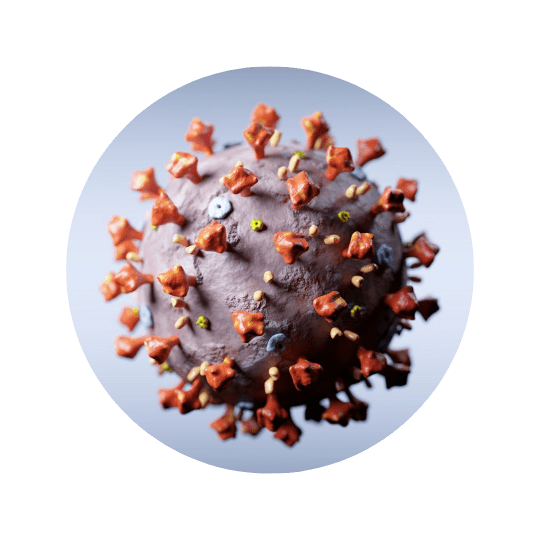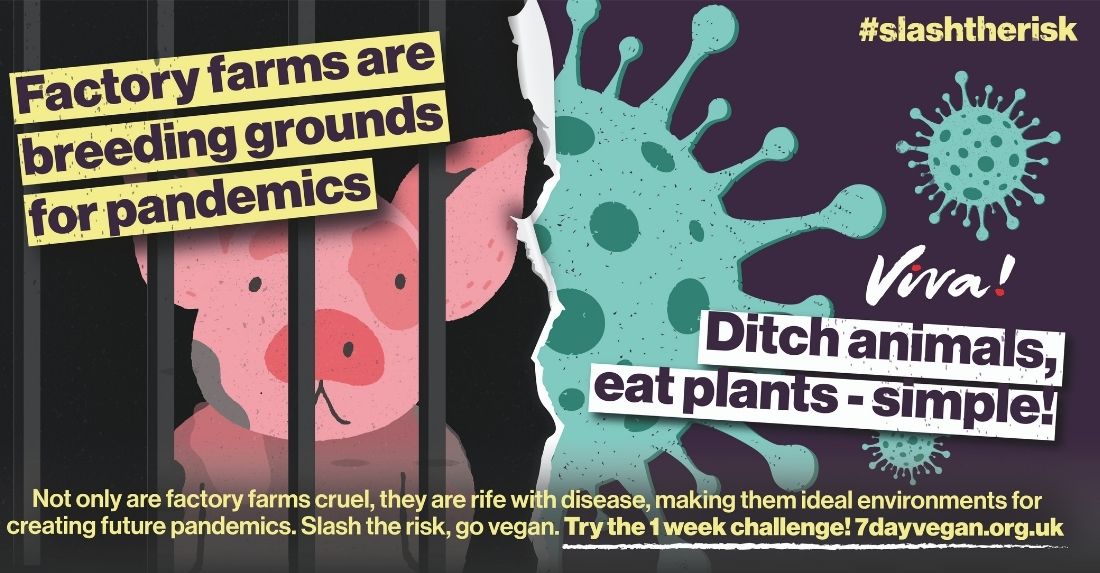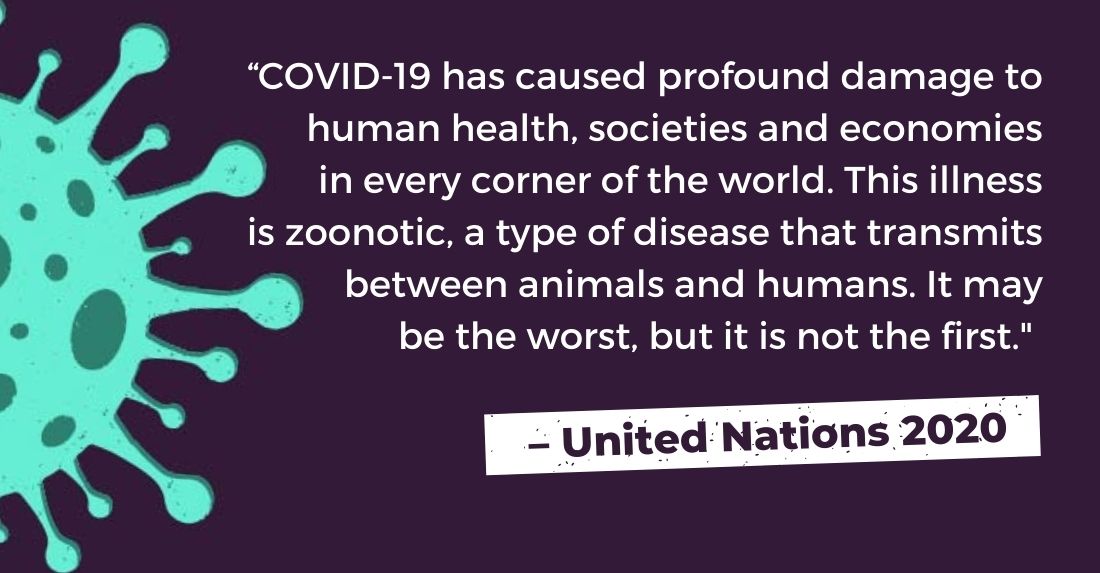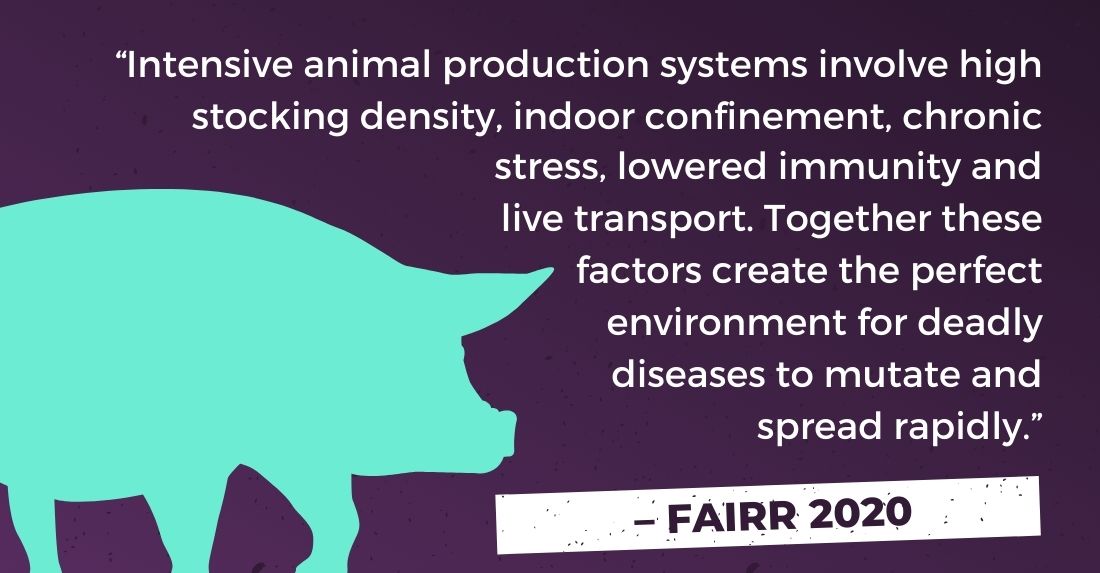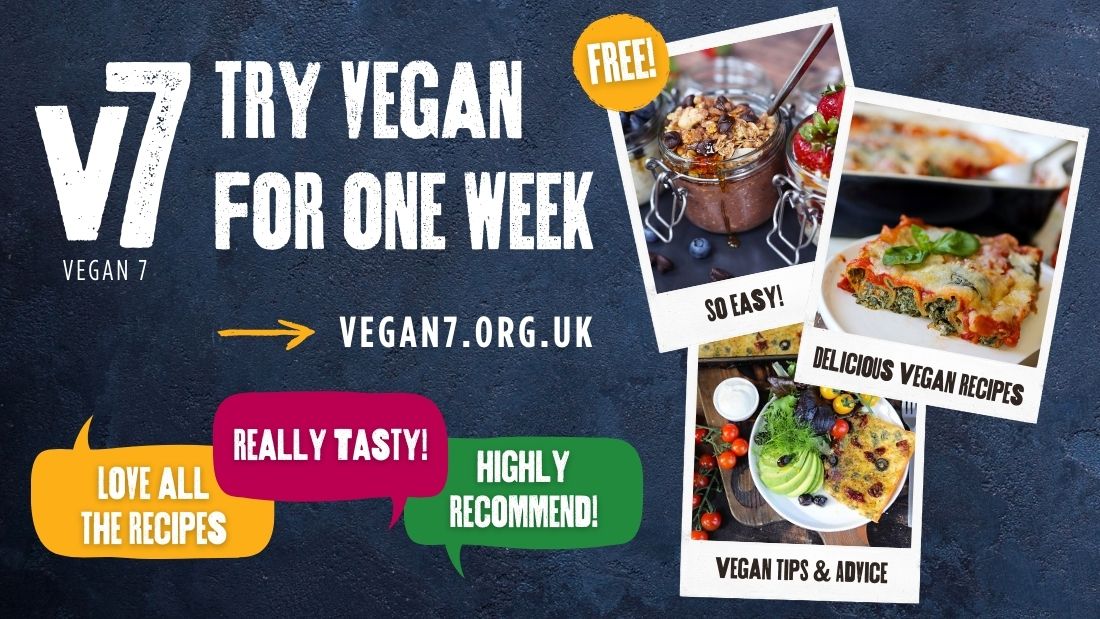Cancer patients tend to have decreased levels of white blood cells that are crucial for a healthy immune response – this is a big risk factor for Covid-19 (Gosain et al., 2020). Hospital data show that cancer doubles the risk of infection with severe symptoms requiring hospitalisation. (Dai et al., 2020; Sidaway, 2020).
Cancer is a very complex, serious condition and a diet change alone cannot cure it. However, we can significantly lower our chances of developing it by changing our diet and lifestyle.
According to a large study from Oxford University, if you’re vegan, you have a 19 per cent lower risk of developing cancer compared to meat-eaters (Key et al., 2014). This result corresponds with other scientific studies that show 15-18 per cent lower cancer rates in vegans (Huang et al. 2012; Tantamango-Bartley et al., 2013; Dinu et al., 2017; Segovia-Siapco and Sabaté, 2019). One of these studies also revealed that vegan women had a 34 per cent lower risk of female-specific cancers (Tantamango-Bartley et al., 2013).
Perhaps unsurprisingly, since food passes through the stomach, vegetarians were shown to have a whopping 63 per cent lower risk of stomach cancer (Appleby and Key, 2016). Lower down the digestive tract, it’s clear why fibre from plant foods is so important – there is a 10-13 per cent decrease in the risk of colorectal cancer for each 10 grams of fibre consumed from plant-based wholefoods (Aune et al., 2011; Murphy et al., 2012).
Gray et al. (2020) suggested several mechanisms for the protective effects of plant-based diets – vegans tend to have healthier weight which lowers the risk of obesity-related cancers, such as colon, breast and prostate cancers; vegan diets contain more fruits and vegetables, which contain phytochemicals, antioxidants, fibre, flavonoids and vitamin C, all proposed to have protective effects against the development of cancer; and high consumption of pulses may decrease the risk of prostate cancer. This is complemented by the fact that the absence of red meat is also an important factor since it has been strongly associated with the development of colon, oesophagus, liver and lung cancers; and the absence of eggs in vegan diets may lower the risk of pancreatic cancer.
Vegan diets containing soya and cruciferous vegetables (broccoli, kale, watercress, rocket, radishes and cabbage) may also offer additional cancer protection. Soya consumption has been linked to a lower risk of certain types of cancer – breast, prostate, ovarian and bowel cancers (Chatterjee et al., 2018; Rizzo and Baroni, 2018). And cruciferous vegetables contain natural compounds that actively combat cancer cells and help protect our long-term health (Soundararajan and Kim, 2018).
Meat has been repeatedly linked to cancer, the World Health Organisation (WHO) classified processed meat as carcinogenic and red meat as probably carcinogenic (Bouvard et al., 2015). Even small amounts of red and processed meat have been shown to increase your risk of colon, breast and prostate cancer (Wolk, 2017).
Cooking meat at high temperatures produces dangerous compounds called polycyclic aromatic hydrocarbons (PAH) and heterocyclic amines. These have a very high potential for causing cancer (Jariyasopit et al., 2014; Papaioannou et al., 2014). Some substances added to processed meat, such as nitrites, can lead to the formation of carcinogenic N-nitroso compounds, which is another reason why processed meat poses such a big cancer risk.
Then, there are polychlorinated biphenyls (PCBs). These industrial pesticides were banned worldwide more than 30 years ago because of their toxicity but they are still present in our environment. Once in the body, PCBs accumulate in the fat tissue and can cause serious health issues, including cancer. A review on PCBs revealed that in the food chain, fish, dairy, hamburgers and poultry are the most contaminated foods (Crinnion, 2011).
And there’s yet another reason why animal products may increase your cancer risk – insulin-like growth factor 1 (IGF-1). It’s a growth hormone naturally produced by your liver, vital to childhood growth and stimulating cell growth and reproduction in adults. However, IGF-1 also promotes cancer cell growth and that’s why increased IGF-1 levels are considered dangerous (Jenkins et al., 2006). Scientists warn that whey proteins from dairy products cause a rise in insulin, IGF-1 and growth hormone levels in the human body (Melnik et al., 2011). The association between dairy intake and cancer is the strongest for prostate cancer (Travis et al., 2016) and there is also substantial evidence for the same mechanism and breast cancer (Bradbury et al., 2015). It’s worth noting that vegans have been found to have significantly lower levels of IGF-1 than meat-eaters (Allen et al., 2000 and 2002; McCarty, 2014).
References
Allen NE, Appleby PN, Davey GK et al. 2000. Hormones and diet: low insulin-like growth factor-I but normal bioavailable androgens in vegan men. British Journal of Cancer. 83 (1) 95-97.
Appleby PN, Key TJ. 2016. The Long-Term Health of Vegetarians and Vegans. Proceedings of the Nutrition Society. 75 (3) 287-293.
Aune D, Chan DS, Lau R et al. 2011. Dietary fibre, whole grains, and risk of colorectal cancer: systematic review and dose-response meta-analysis of prospective studies. British Medical Journal. 343, d6617.
Bouvard V, Loomis D, Guyton KZ et al., International Agency for Research on Cancer Monograph Working Group. 2015. Carcinogenicity of consumption of red and processed meat. The Lancet Oncology. 16 (16) 1599-600.
Bradbury KE, Balkwill A, Tipper SJ et al. 2015. The association of plasma IGF-I with dietary, lifestyle, anthropometric, and early life factors in postmenopausal women. Growth Hormone and IGF Research. 25 (2) 90-95.
Chatterjee C, Gleddie S, Xiao CW. 2018. Soybean Bioactive Peptides and Their Functional Properties. Nutrients. 10 (9) pii: E1211.
Crinnion WJ. 2011. Polychlorinated biphenyls: persistent pollutants with immunological, neurological, and endocrinological consequences. Alternative Medicine Review: a journal of clinical therapeutic. 16 (1) 5-13.
Dai M, Liu D, Liu M et al. 2020. Patients with cancer appear more vulnerable to SARS-CoV-2: a multicenter study during the COVID-19 outbreak. Cancer Discovery. 10 (6) 783-791.
Dinu M, Abbate R, Gensini GF et al. 2017. Vegetarian, vegan diets and multiple health outcomes: A systematic review with meta-analysis of observational studies. Critical Reviews in Food Science and Nutrition. 57 (17) 3640-3649.
Gosain R, Abdou Y, Singh A et al. 2020. COVID-19 and Cancer: a Comprehensive Review. Current Oncology Reports. 22 (5) 53.
Gray A, Dang BN, Moore TB et al. 2020. A review of nutrition and dietary interventions in oncology. SAGE Open Medicine. 8, 2050312120926877.
Huang RY, Huang CC, Hu FB et al. 2016. Vegetarian Diets and Weight Reduction: a Meta-Analysis of Randomized Controlled Trials. Journal of General Internal Medicine. 31 (1) 109-116.
Jariyasopit N, McIntosh M, Zimmermann K et al. 2014. Novel Nitro-PAH Formation from Heterogeneous Reactions of PAHs with NO2, NO3/N2O5, and OH Radicals: Prediction, Laboratory Studies, and Mutagenicity. Environmental Science and Technology. 48 (1) 412-419.
Jenkins PJ, Mukherjee A and Shalet SM. 2006. Does Growth Hormone Cause Cancer? Clinical Endocrinology. 64 (2) 115-121.
Key TJ, Appleby PN, Crowe FL, Bradbury KE, Schmidt JA, Travis RC. 2014. Cancer in British vegetarians: updated analyses of 4998 incident cancers in a cohort of 32,491 meat eaters, 8612 fish eaters, 18,298 vegetarians, and 2246 vegans. American Journal of Clinical Nutrition. 100 Suppl 1:378S-385S.
McCarty MF. 2014. GCN2 and FGF21 are likely mediators of the protection from cancer, autoimmunity, obesity, and diabetes afforded by vegan diets. Medical Hypotheses. 83 (3) 365–371.
Melnik BC. 2011. Evidence for acne-promoting effects of milk and other insulinotropic dairy products. Nestle Nutrition Workshop Series: Pediatric Programme. 67:131‐145.
Murphy N, Norat T, Ferrari P, Jenab M et al. 2012. Dietary fibre intake and risks of cancers of the colon and rectum in the European prospective investigation into cancer and nutrition (EPIC). PLoS One. 7 (6): e39361.
Papaioannou MD, Koufaris C and Gooderham NJ. 2014. The cooked meat-derived mammary carcinogen 2-amino-1-methyl-6-phenylimidazo[4,5-b]pyridine (PhIP) elicits estrogenic-like microRNA responses in breast cancer cells. Toxicology Letters. 229 (1): 9-16.
Rizzo G and Baroni L. 2018. Soy, Soy Foods and Their Role in Vegetarian Diets. Nutrients. 10 (1): 43.
Segovia-Siapco G, Sabaté J. 2019. Health and sustainability outcomes of vegetarian dietary patterns: a revisit of the EPIC-Oxford and the Adventist Health Study-2 cohorts. European Journal of Clinical Nutrition. 72(Suppl 1):60-70.
Sidaway P. 2020. COVID-19 and cancer: what we know so far. Nature Reviews. Clinical Oncology. 17(6):336.
Soundararajan P and Kim JS. 2018. Anti-Carcinogenic Glucosinolates in Cruciferous Vegetables and Their Antagonistic Effects on Prevention of Cancers. Molecules. 23(11). pii: E2983.
Tantamango-Bartley Y, Jaceldo-Siegl K, Fan J, Fraser G. 2013. Vegetarian diets and the incidence of cancer in a low-risk population. 2013. Cancer Epidemiology, Biomarkers & Prevention. 22 (2): 286-294.
Wolk A. 2017. Potential health hazards of eating red meat (Review). Journal of Internal Medicine. 281: 106–122.
